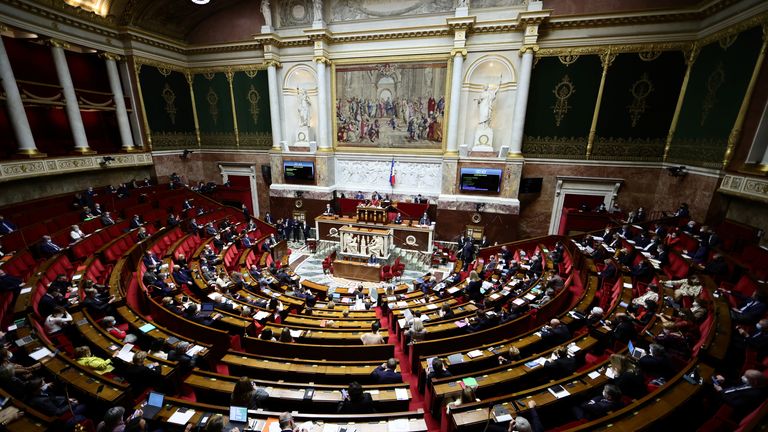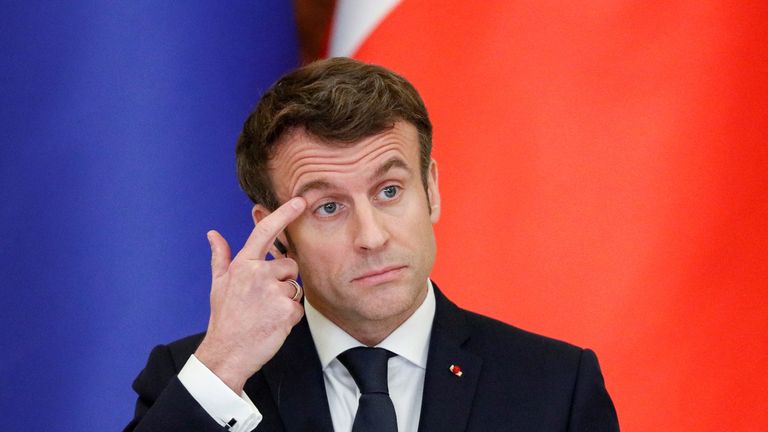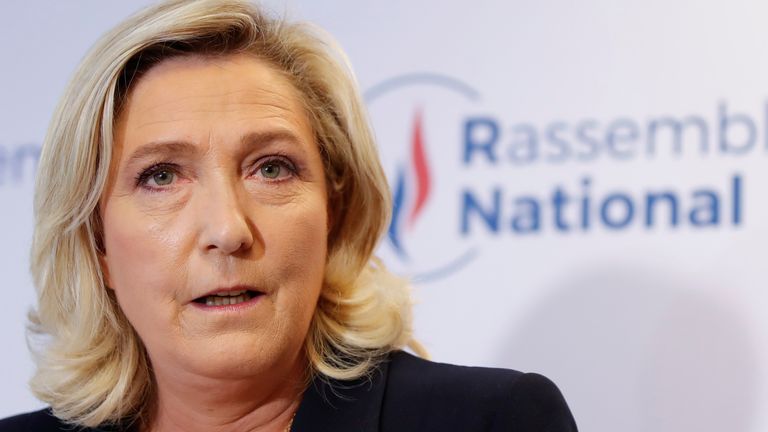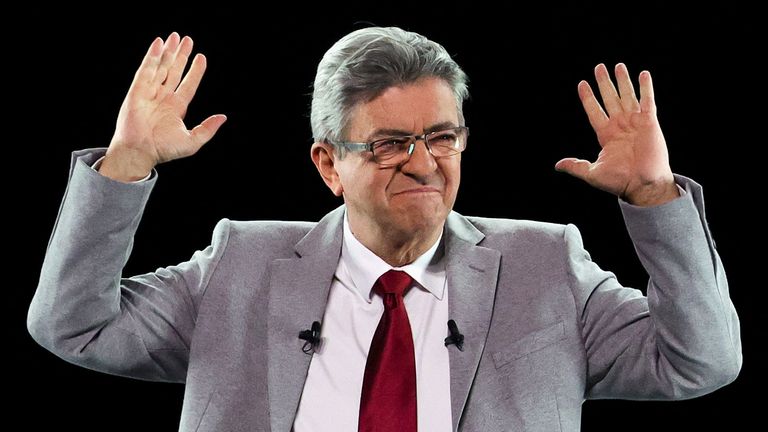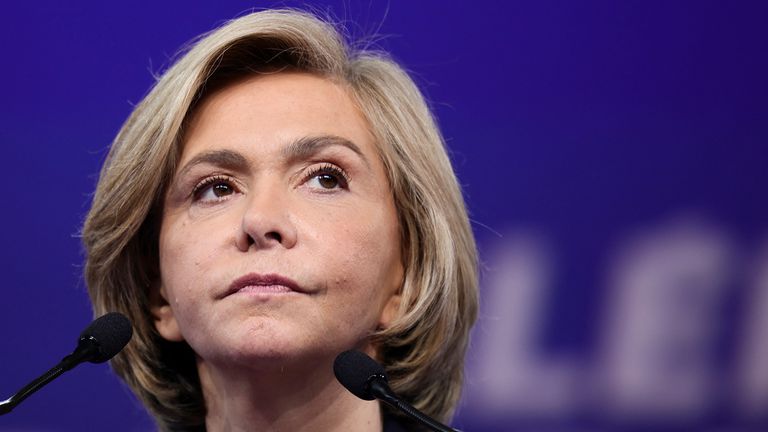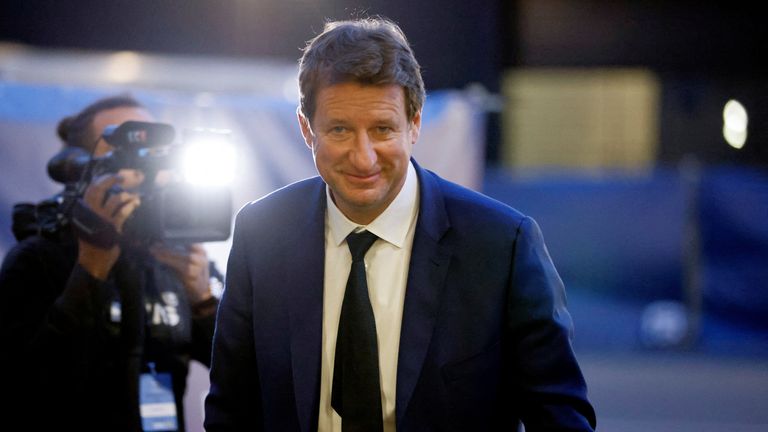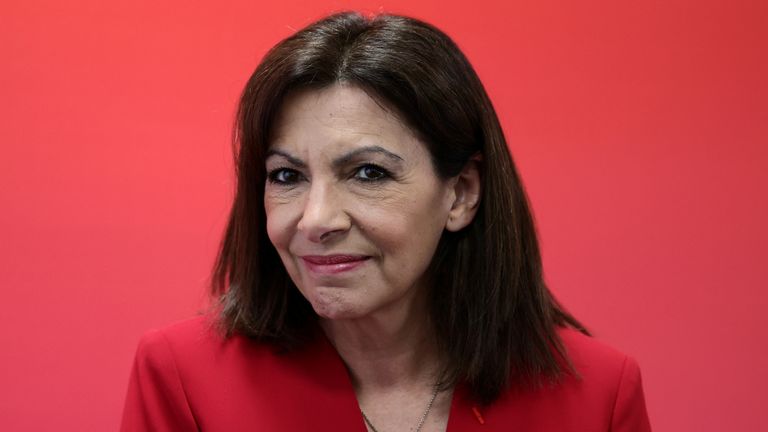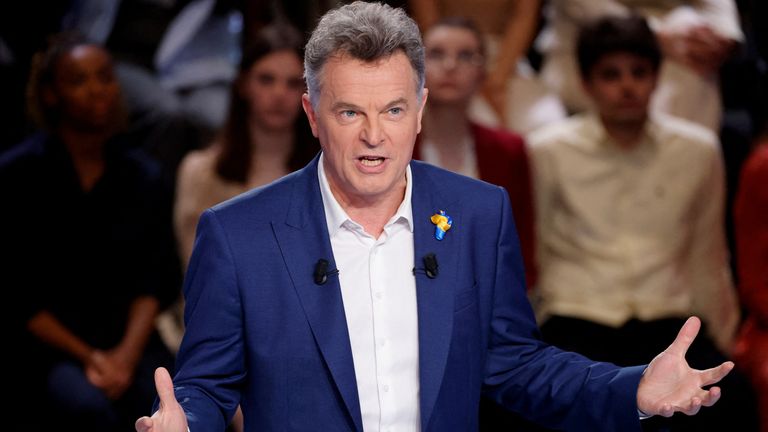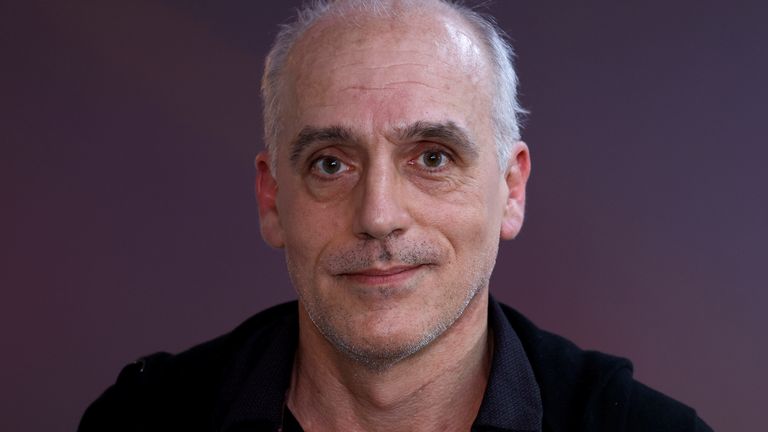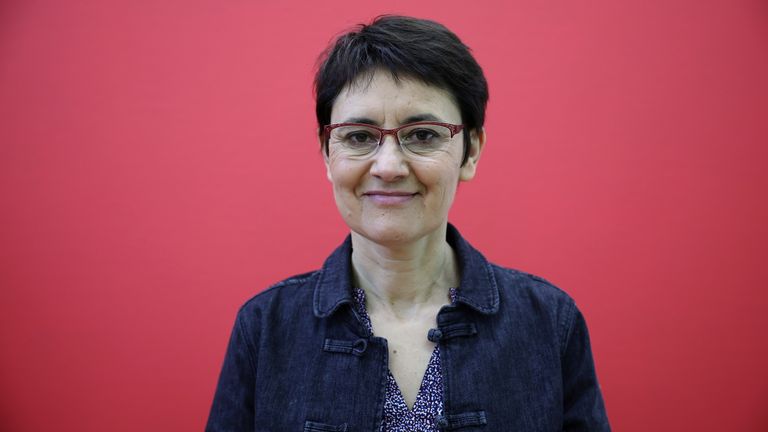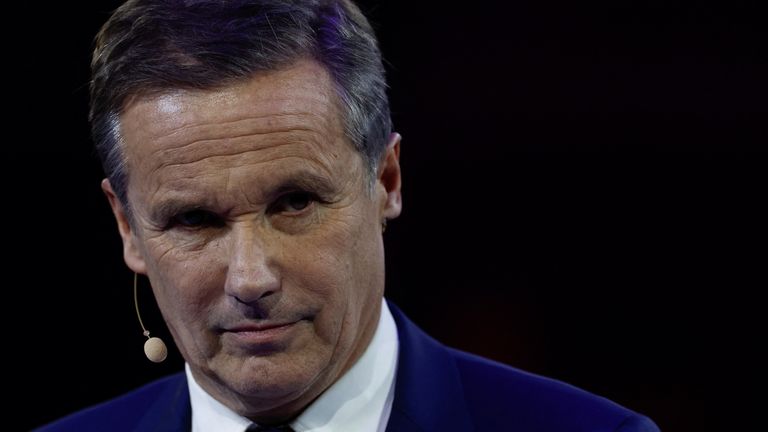French voters will go to the polls in the first round of France’s 2022 presidential elections on Sunday.
Although President Emmanuel Macron is still leading the polls, his main rival Marine Le Pen has climbed up the ratings and now poses a veritable challenge to his hopes of a second term in the Elysee.
If Ms Le Pen is elected, her far-right policies would mean huge changes for France and for the rest of Europe.
Sky News looks at how the French president is elected and how this year’s vote is shaping up.
How does it work?
France has a semi-presidential system, which means it has both a president and a prime minister.
But compared to other similar ones around the world, the French president has considerably wide-ranging powers.
They are directly elected, which means people vote for the candidate themselves – not their party. Unlike in the UK, where the leader of the party with the most votes becomes prime minister.
The presidential vote is divided into two rounds – taking place this year on 10 and 24 April.
Any candidate with the backing of 500 sponsors can run in the first round.
If one person gets more than 50% of the vote, they win outright, but this hasn’t happened since Charles de Gaulle’s re-election in 1965.
Otherwise, only the top two candidates make it through to the second round.
Whoever wins that round will become president – this year on 13 May – for a five-year term.
A similar two-round vote will then take place for the MPs – or deputes – in the National Assembly, France’s lower house of parliament.
Because the two votes run on the same five-year cycle, the president’s party almost always wins the majority of the 577 seats in the National Assembly as well.
But until 2002 the cycles were slightly different, which meant the president’s party sometimes failed to security a majority, significantly reducing his power.
The new president is also tasked with electing a prime minister, to be in charge of the government, while they preside over the executive.
Who is running?
There are 12 candidates in the first round of this year’s election, ranging from the far-right to the far-left.
Although Mr Macron has dominated the opinion polls in the years since his election in 2017, in recent weeks, his main rival Ms Le Pen has closed the gap.
Emmanuel Macron
Elected at just 39, Emmanuel Macron is the youngest French president in history.
Previously a member of the Socialist Party, the former investment banker created his own centrist party La Republique En Marche (France on the Move) in 2016.
With En Marche’s majority in the National Assembly, Mr Macron’s pro-business policies have seen an overhaul of France’s staunchly-protected labour code, nationalised railways and pension system.
This has seen him come up against major opposition from the Yellow Vests – or Gilets Jaunes – who have staged regular protests throughout his presidency.
He has also had to navigate the economic fallout from the coronavirus pandemic as well as, more recently, the war in Ukraine.
Although he has played a negotiating role between the two sides, some have criticised him for keeping an open dialogue with his Russian counterpart, Vladimir Putin.
Marine Le Pen
Marine Le Pen, 53, was the runner-up in the 2017 elections. This will be her third attempt at the presidency.
A key far-right figure, she is the daughter of the Jean-Marie Le Pen, who founded France’s National Front and is notorious for his racist, anti-immigrant views.
She took over from her father as leader in 2011 and, in an attempt to distance herself from his reputation, banished him from the party in 2015.
After losing out to Mr Macron in 2017, she rebranded the National Front to National Rally.
Although anti-immigration by nature and a previous supporter of Mr Putin, Ms Le Pen has been quick to announce her support for Ukrainian refugees.
She has also focused heavily on the cost of living crisis, which many credit with her recent uptick in the polls.
Jean-Luc Melenchon
Leader of the far-left party La France Insoumise – France Unbowed – Jean-Luc Melenchon is the best hope of a left-wing candidate reaching the second round, currently polling third.
Although unlikely to beat Ms Le Pen, the 70-year-old is a veteran of French politics and known for his divisive rhetoric.
His policies include weaning France off of nuclear energy, increasing the minimum wage and reducing presidential powers.
Eric Zemmour
Eric Zemmour is another far-right candidate running this year.
A former columnist and TV pundit with convictions for inciting racial hatred, he is the more radical option to Ms Le Pen.
Vehemently anti-immigration and anti-Islam, the 63-year-old’s pro-Russian views have also been a burden on him following the outbreak of war in Ukraine, with Ms Le Pen quick to disassociate herself with the Kremlin.
Valerie Pecresse
Right-wing candidate Valerie Pecresse already holds high political office as president of Paris’s Ile de France region.
The 54-year-old is running for the Republicans – France’s mainstream Conservative party.
Many of her policies are similar to Mr Macron’s, which has meant she has struggled to differentiate herself and poll very highly.
Yannick Jadot
Among the left-wing candidates is Yannick Jadot, a former Greenpeace campaigner.
The 54-year-old has served as a Green member of the European Parliament, representing the West France constituency, since 2009.
Mr Jadot had been hoping to capitalise on the success the French Greens had in the local elections two years ago, but he looks unlikely to poll anywhere near the second round.
Anne Hidalgo
Mayor of Paris Anne Hidalgo is running for the French socialists.
Although popular in her current constituency, with the French left enjoying little success since Francois Hollande’s epic fall in popularity, the 62-year-old is currently only polling in single digits.
Fabien Roussel
Current leader of the French communist party, Fabien Roussel, has been a member of the National Assembly since 2017.
The 52-year-old’s policies include increasing taxes for big business and nationalising large banks and energy companies.
Philippe Poutou
A far-left candidate for the New Anti-Capitalist Party, Philippe Poutou is a former Ford factory worker who made headlines for insulting his fellow candidates in the 2017 first round and refusing to take part in a joint photo.
It is the 55-year-old’s third attempt at the presidency.
Nathalie Arthaud
Secondary school teacher Nathalie Arthaud, 60, has also stood for the presidency three times since 2001.
Spokesperson for France’s Workers’ Struggle party, she advocates for large increases in the minimum wage and a ban on job cuts.
Nicolas Dupont-Aignan
The only sitting MP for the far-right Debout la France – Rise Up, France party, Nicolas Dupont-Aignan has previously served as the mayor of Paris suburb Yerres.
The 61-year-old’s extreme policies on immigration have largely been drowned out by the more popular Marine Le Pen and Eric Zemmour.
Jean Lassalle
The founder of his own agricultural-focused party Resistons!, former shepherd Jean Lassalle has been an MP in the Pyrenees since 2002.
Passionate about rural issues, he is well known and liked by many, but his political career is almost certain to remain confined to his seat in the National Assembly.

